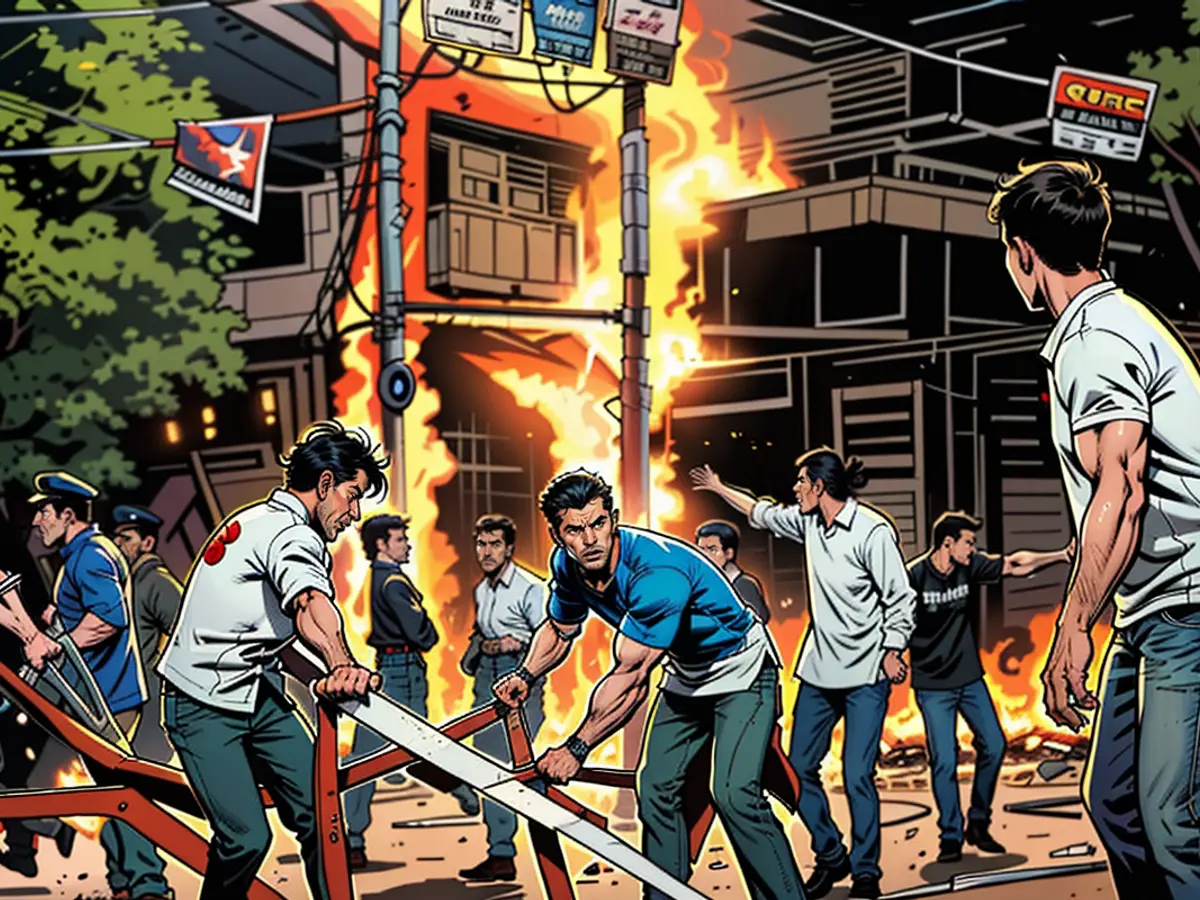At least 300 killed in Bangladesh protests
Protests in Bangladesh claim more victims, with the death toll now in the hundreds. The Ministry of Home Affairs imposes a curfew. Prime Minister Hasina calls for a tough response.
The death toll in Bangladesh's protests against Prime Minister Sheikh Hasina has risen to at least 300, according to AFP news agency reports from police, hospital doctors, and officials. Protests are expected to resume on Monday.
The Ministry of Home Affairs imposed a curfew on Sunday, with no specified end date. Starting Monday, a three-day holiday has been declared for all citizens.
"Those protesting on the streets are not students, they are terrorists trying to destabilize our nation," said Hasina. She urged her fellow citizens to respond firmly. Protesters had blocked major roads throughout Sunday, with students demanding the government's resignation. Police used tear gas, stun grenades, and rubber bullets to disperse the protesters. Internet services were suspended nationwide.
Clashes between supporters and opponents of Hasina's Awami League party occurred in numerous cities. In the northwest, 12 police officers were beaten to death, according to police spokesman Bijoy Bosak. In the capital Dhaka, at least 11 people were killed and dozens injured in street battles, according to police and eyewitnesses. In the city of Munsiganj, two construction workers were killed on their way to work, with hundreds injured, according to eyewitnesses.
Thousands arrested in July
These were the worst riots in the South Asian country since Hasina's election victory in January, which was boycotted by the main opposition party. Last month, at least 150 people died in politically motivated violence in Bangladesh, with around 10,000 arrests made by police.
Students were protesting against quotas in public service job allocations, which were later largely struck down by a court. However, students are now demanding justice for the families of those killed in the protests. Critics have accused the government of excessive force in suppressing the protests, which Hasina denies.
The Ministry of Home Affairs, following the escalating violence, imposed a curfew on Sunday, citing the need for maintaining public order. In response to 'The following' violent protests, Prime Minister Hasina urged citizens to stand firm and support the authorities in restoring peace.








